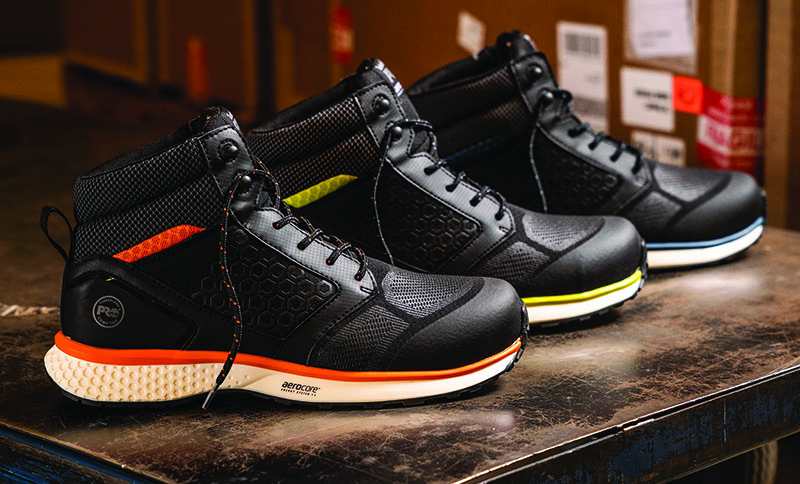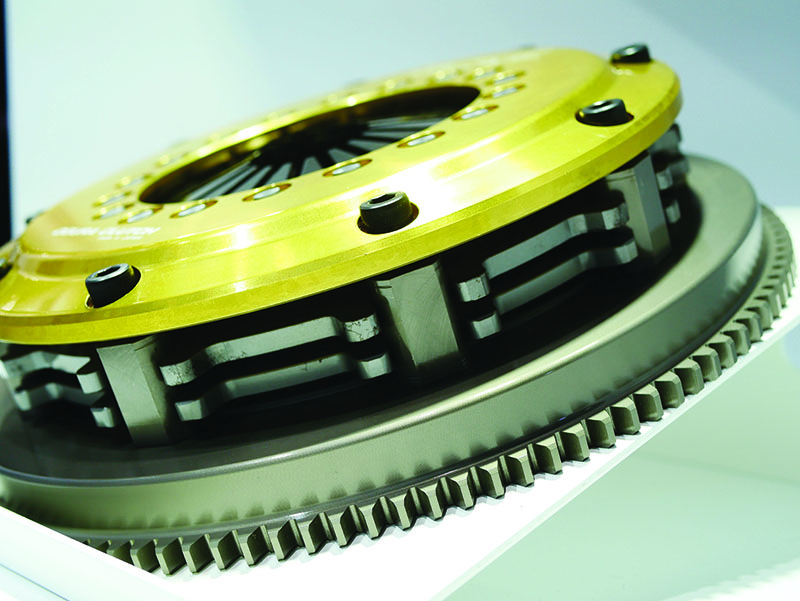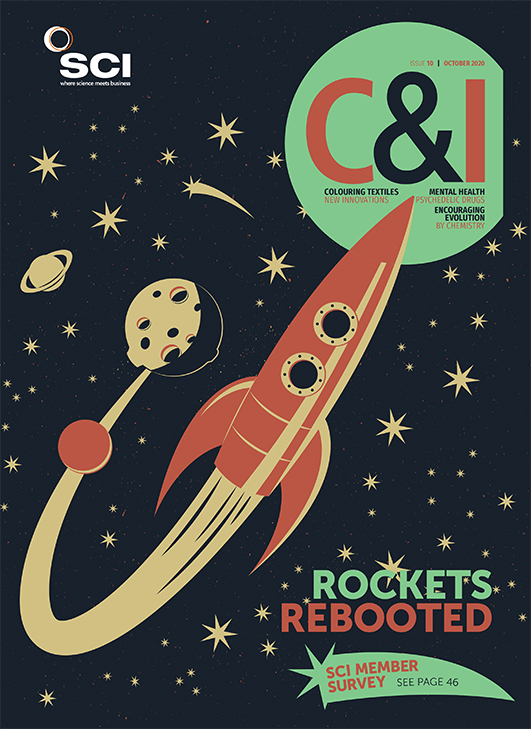BASF is investing €16m into German recycling technology company Pyrum Innovations, which focuses on the pyrolysis of waste tyres. The investment will be used to expand Pyrum’s pyrolysis plant in Dillingen. BASF will process the pyrolysis oil into functional plastics as part of its ChemCycling project. In addition, BASF and the University of North Carolina at Chapel Hill, US, have entered into a research agreement to address global challenges such as climate change, food security and scarcity of resources. The agreement contains pre-agreed terms for intellectual property, publication and confidentiality aimed at enabling open scientific discussions between the two parties. Finally, following the bundling of services and resources and the implementation of its digitalisation strategy, the number of employees in BASF’s Global Business Services worldwide is expected to decline by up to 2000 by the end of 2022, achieving an annual cost saving of over €200m for the company.
Dutch biotechnology company Amarna Therapeutics is collaborating with the Spanish research foundation Progreso y Salud to examine the efficacy of its proprietary gene delivery vector for immunotherapies aimed at diabetes mellitus type 1 and multiple sclerosis. Amarna is investing some €0.6m over the next two years in FPS to conduct the animal proof-of-principle studies.
German biotechnology company BioNTech is set to acquire a GMP manufacturing facility from Swiss pharma major Novartis. The site in Marburg, Germany will expand BioNTech’s Covid-19 vaccine production capacity, providing up to 250m doses in the first half of 2021, and potentially 750m doses annually once fully operational. The transaction is expected to close in Q4 2020.
US venture capital firm Flagship Pioneering has launched two new companies. Generate Biomedicines is an early-stage life sciences company, which is using a machine learning-biomedicines platform to generate new drugs across a wide range of biologic modalities. Valo Health is a drug discovery technology company, which integrates machine learning, cloud computing and data to create an efficient drug discovery and development process.
Swiss speciality chemicals company Clariant is building a state-of-the-art catalyst production site in Jiaxing, Zhejiang Province, China. The facility will produce the Catofin catalyst for propane dehydrogenation, which is used in the production of olefins. Construction is scheduled to start in Q3 2020, with the site at full production capacity by 2022.
Dutch science-based company Royal DSM and Dutch materials and technology company Nedcam are collaborating to develop new applications for large-size 3D printing. The partnership will use Nedcam’s fused granulate fabrication 3D printing technology and DSM’s materials.
The European Chemicals Agency’s committee for socio-economic analysis has agreed to support France and Sweden’s proposal to restrict the use of over 1000 skin sensitising chemicals in clothing, footwear and other articles with similar skin contact.
Global CRO Europital, headquartered in Belgium, is expanding its services to include project management, clinical monitoring, biostatistics, pharmacovigilance, regulatory affairs and data management, in addition to its existing services of medical affairs and medical writing. The expanded clinical research offering will see Europital support clients in over 40 countries.
US-based Hemlock Semiconductor Operations, which manufactures polycrystalline silicon products for use in semiconductor devices, has acquired DuPont’s trichlorosilane business in Midland, Michigan. The acquisition will allow Hemlock to control supply and reduce costs of this primary raw material used in producing its ultra-pure polysilicon.
UK nanoparticle technology company Promethean Particles is taking part in the Carmof project, a collaboration of 15 contributors from nine countries aimed at developing metal-organic frameworks (MOFs) for CO2 capture. The project is funded under European Commission’s Horizon 2020 research and innovation programme and is expected to aid the EU’s 2050 greenhouse gas emission reduction target.
Investment by Catalent, a US-head-quartered global provider of advanced drug delivery technologies, to expand the manufacturing capacity at its gene therapy site in Harmans, Maryland, US.
To be paid by US biopharmaceutical company Gilead Sciences for Immunomedics, a US pharmaceutical company which develops antibody-drug conjugates (ADCs) for the treatment of cancer. The acquisition, which is expected to be completed in Q4 2020, will provide Gilead with a first-in-class ADC for treating metastatic triple-negative breast cancer.
Investment by US pharma major Merck & Co to collaborate with biotechnology company Seattle Genetics, headquartered in Washington state, US. The partnership will develop Seattle Genetics’ Phase II antibody-drug conjugate for treating breast cancer and other solid tumours. In addition, Merck was granted an exclusive license to commercialise Seattle Genetics’ marketed cancer drug Tukysa, in Asia, the Middle East, and Latin America, and other regions outside of the US, Canada, and Europe.
Paid by AstraZeneca (AZ) for a long-term supply agreement with South Korean biotech Samsung Biologics. Samsung Biologics will provide large-scale commercial drug manufacturing as well as drug product to support and expand AZ’s biologics capabilities. AZ’s investment could be increased to $545.6m in the future.
Invested by Bayer to expand its production and supply facilities in Beijing, China. New production lines are expected to become operational by the end of 2022 and are set to increase the annual output of Bayer’s prescription drugs at the site by about 40%.
The regenerative medicine business of Hitachi Chemical, now Showa Denko Materials, has changed its name to Minaris Regenerative Medicine to represent its global contract development and manufacturing services business for the cell and gene therapy industry. The three wholly owned regional subsidiary companies within Minaris Regenerative Medicine – Hitachi Chemical Advanced Therapeutics Solutions in the US, Biopharma in Europe, and the company’s Yokohama regenerative medicine facility in Asia – have adopted the same name.
The not-for-profit research organisations Fundación MEDINA, DNDi and Institut Pasteur Korea have been awarded a grant of €995,000 from the Spanish banking foundation La Caixa. The funding, which comes under the foundation’s Health Research 2020 programme, is given to the partners to identify natural products as treatments for leishmaniasis and Chagas disease.
Global science and technology company Merck KGaA is investing €59m to expand its pharmaceutical manufacturing capacity at its facility near Madison, Wisconsin, US. Completion is expected by mid-2022. In addition, the company has invested €50m in a research centre on the campus of its headquarters in Darmstadt, Germany to advance innovations for the display and semiconductor industries.
US start-up Prometheus Fuels, based in Santa Cruz, California has licensed an ethanol-to-jet-fuel conversion process developed by researchers at the Department of Energy’s Oak Ridge National Laboratory. The catalyst-based process converts ethanol into butene-rich mixed olefins, which can be processed into aviation fuel.
China-based investment holding company Viva Biotech, which provides structure-based drug discovery services to biotech and pharmaceutical customers, has agreed to acquire chemistry-focused CRO Synthesis for around $80m. Under the deal, $60m will be paid in cash, $10m will be paid via issuance of Viva shares, and $10m will be settled through drug discovery services to be provided within a five-year period. The acquisition will become a wholly owned subsidiary of Viva.
German life science group Sartorius, headquartered in Göttingen, has acquired a shareholding in the German Research Center for Artificial Intelligence (DFKI). The two partners have been working together for some time on the development of future-focused tools and AI applications to produce advanced medications.
German medical technology company Siemens Healthineers is collaborating with Swiss pharma major Novartis to design, develop and commercialise diagnostic tests for products across Novartis’ therapeutic pipeline. The initial programme will develop an immunoassay to support Novartis’ multiple sclerosis and other neuroscience programmes.
Japanese pharma major Takeda is divesting a portfolio of select non-core prescription pharmaceuticals, sold predominantly in Europe and Canada, to German pharmaceuticals company Cheplapharm for ca $562m. At the same time, Takeda announced the opening of an R&D cell therapy manufacturing facility at its R&D headquarters in Boston, MA, US. The facility is expected to accelerate Takeda’s efforts to develop next-generation cell therapies, initially focused on oncology.
US global investment firm The Carlyle Group has acquired a majority stake in US-based global health research network TriNetX for an undisclosed sum.
A new Energy Innovation Agency is to be established between the University of Manchester, Manchester Metropolitan University and the University of Salford, as well as local government and industry. The universities will apply their energy and environmental research, working with the Greater Manchester Combined Authority and SSE Enterprise, to ensure Manchester meets its 2038 carbon neutral target.








